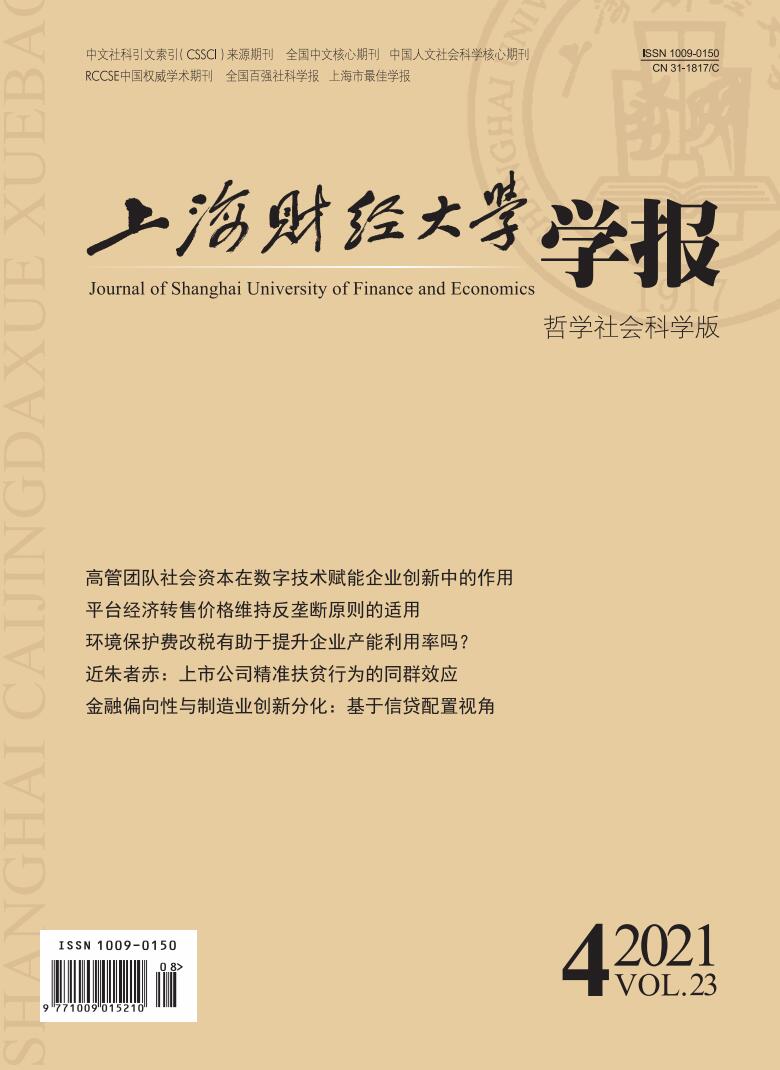中国人口老龄化问题日益严峻,工作场所中员工年龄结构的改变不仅应该引起组织的重视,而且应该成为企业不同利益相关者共同关注的重要议题。年龄包容型社会责任是年龄多元化理论研究和实践管理的创新选择,它寻求员工、消费者等利益相关者与企业共同创造价值,突破了年龄歧视问题的被动应对管理和年龄包容性的积极利用管理,是企业应对人口老龄化的一种特殊履责方式。年龄包容型社会责任的核心概念经历了从年龄多元化、年龄包容性到责任性的动机和认知转变,其管理模式发生了从静观其变阶段、被动应对阶段、主动拥抱阶段到价值共创阶段的演变。年龄包容型社会责任在传统理论的社会责任框架下被赋予了新的内涵,其价值逻辑与生态性建构在学理、管理、治理、伦理和法理五个视域上均有所体现。未来研究应该着眼于年龄包容型社会责任的评价体系、影响效应和管理策略。文章对规范企业年龄管理、积极应对人口老龄化、加强社会责任履行具有启示作用。
年龄包容型社会责任: 研究前沿与展望
摘要
参考文献
5 王艳子,张婷. 包容型领导对员工即兴行为的跨层次影响[J]. 管理学报,2020,(6). DOI:10.3969/j.issn.1672-884x.2020.06.001
8 Alhaddi H. Triple bottom line and sustainability:A literature review[J]. Business and Management Studies,2015,1(2):6–10. DOI:10.11114/bms.v1i2.752
9 Allison M T,Hibbler D K. Organizational barriers to inclusion:Perspectives from the recreation professional[J]. Leisure Sciences,2004,26(3):261–280. DOI:10.1080/01490400490461396
10 Ashikali T,Groeneveld S,Kuipers B. The role of inclusive leadership in supporting an inclusive climate in diverse public sector teams[J]. Review of Public Personnel Administration,2020. DOI:10.1177/0734371X19899722
11 Ayalon L. Feelings towards older vs. younger adults:Results from the European Social Survey[J]. Educational Gerontology,2013,39(12):888–901. DOI:10.1080/03601277.2013.767620
12 Baden D. A reconstruction of Carroll’s pyramid of corporate social responsibility for the 21st century[J]. International Journal of Corporate Social Responsibility,2016,1(1):1–15. DOI:10.1186/s40991-016-0002-8
13 Baltes B B,Finkelstein L M. Contemporary empirical advancements in the study of aging in the workplace[J]. Journal of Organizational Behavior,2011,32(2):151–154. DOI:10.1002/job.727
14 Barak M E M,Cherin D A,Berkman S. Organizational and personal dimensions in diversity climate:Ethnic and gender differences in employee perceptions[J]. The Journal of Applied Behavioral Science,1998,34(1):82–104. DOI:10.1177/0021886398341006
16 Begley A M. Facilitating the development of moral insight in practice:Teaching ethics and teaching virtue[J]. Nursing Philosophy,2006,7(4):257–265. DOI:10.1111/j.1466-769X.2006.00284.x
17 Bilinska P,Wegge J,Kliegel M. Caring for the elderly but not for one’s own old employees?[J]. Journal of Personnel Psychology,2016,15(3):95–105. DOI:10.1027/1866-5888/a000144
19 Burmeister A,van der Heijden B,Yang J,et al. Knowledge transfer in age-diverse coworker dyads in China and Germany:How and when do age-inclusive human resource practices have an effect?[J]. Human Resource Management Journal,2018,28(4):605–620. DOI:10.1111/1748-8583.12207
20 Chiu W CK,Chan A W,Snape E,et al. Age stereotypes and discriminatory attitudes towards older workers:An East-West comparison[J]. Human Relations,2001,54(5):629–661. DOI:10.1177/0018726701545004
21 Cortijo V,McGinnis L P,Şişli-Ciamarra E. The AGE model:Addressing ageism in the workplace through corporate social responsibility[J]. Journal of Labor and Society,2019,22(1):197–213. DOI:10.1111/wusa.12387
22 De Meulenaere K,Boone C,Buyl T. Unraveling the impact of workforce age diversity on labor productivity:The moderating role of firm size and job security[J]. Journal of Organizational Behavior,2016,37(2):193–212. DOI:10.1002/job.2036
23 Dormann C,Griffin M A. Optimal time lags in panel studies[J]. Psychological Methods,2015,20(4):489–505. DOI:10.1037/met0000041
24 Dwertmann D J G,Nishii L H,van Knippenberg D. Disentangling the fairness & discrimination and synergy perspectives on diversity climate:Moving the field forward[J]. Journal of Management,2016,42(5):1136–1168. DOI:10.1177/0149206316630380
26 Finkelstein L M,Ryan K M,King E B. What do the young(old)people think of me?Content and accuracy of age-based metastereotypes[J]. European Journal of Work and Organizational Psychology,2013,22(6):633–657. DOI:10.1080/1359432X.2012.673279
27 Gellert F J,De Graaf F J. Corporate social responsibility and aging workforces:An explorative study of corporate social responsibility implementation in small-and medium-sized enterprises[J]. Business Ethics:A European Review,2012,21(4):353–363. DOI:10.1111/j.1467-8608.2012.01659.x
28 Goldman B M,Gutek B A,Stein J H,et al. Employment discrimination in organizations:Antecedents and consequences[J]. Journal of Management,2006,32(6):786–830. DOI:10.1177/0149206306293544
29 Grover A. Importance of CSR in inclusive development[J]. Procedia–Social and Behavioral Sciences,2014,157:103–108. DOI:10.1016/j.sbspro.2014.11.013
30 Hayashi C,Olkkonen H,Sikken B J,et al. Transforming pensions and health care in a rapidly ageing world:Opportunities and collaborative strategies[J]. Pensions An International Journal,2010,15(3):161–174. DOI:10.1057/pm.2010.22
31 Hays-Thomas R,Bendick M Jr. Professionalizing diversity and inclusion practice:Should voluntary standards be the chicken or the egg?[J]. Industrial and Organizational Psychology,2013,6(3):193–205. DOI:10.1111/iops.12033
32 Hillman ,A J,Shropshire C,Cannella A A. Organizational predictors of women on corporate boards[J]. Academy of Management Journal,2007,50(4):941–952. DOI:10.5465/amj.2007.26279222
35 Iweins C,Desmette D,Yzerbyt V,et al. Ageism at Work:The impact of intergenerational contact and organizational multi-age perspective[J]. European Journal of Work and Organizational Psychology,2013,22(3):331–346. DOI:10.1080/1359432X.2012.748656
36 Kunze F,Boehm S A,Bruch H. Age diversity,age discrimination climate and performance consequences—A cross organizational study[J]. Journal of Organizational Behavior,2011,32(2):264–290. DOI:10.1002/job.698
37 Kuznetsova Y. Inclusive corporate culture and employment of persons with disabilities: Analysis of CSR strategies of multinational enterprises in Norway and the UK[C]. UFHRD 2012 Conference. 2012.
38 Leap T,Loughry M L. The stakeholder-friendly firm[J]. Business Horizons,2004,47(2):27–32. DOI:10.1016/j.bushor.2003.07.002
39 Li Y,Gong Y,Burmeister A,et al. Leveraging age diversity for organizational performance:An intellectual capital perspective[J]. Journal of Applied Psychology,2021,106(1):71–91. DOI:10.1037/apl0000497
40 Liebermann S C,Wegge J,Jungmann F,et al. Age diversity and individual team member health:The moderating role of age and age stereotypes[J]. Journal of Occupational and Organizational Psychology,2013,86(2):184–202. DOI:10.1111/joop.12016
41 Masoud N. How to win the battle of ideas in corporate social responsibility:The international pyramid model of CSR[J]. International Journal of Corporate Social Responsibility,2017,2(1):1–22. DOI:10.1186/s40991-017-0012-1
42 Mukherjee S. Prepare for the digital health revolution[J]. Fortune,2017,175(6):37–45.
43 Nishii L H. The benefits of climate for inclusion for gender-diverse groups[J]. Academy of Management Journal,2013,56(6):1754–1774. DOI:10.5465/amj.2009.0823
44 Ortlieb R,Sieben B. The making of inclusion as structuration:Empirical evidence of a multinational company[J]. Equality,Diversity and Inclusion,2014,33(3):235–248. DOI:10.1108/EDI-06-2012-0052
45 Parker S K,Andrei D M. Include,individualize,and integrate:Organizational meta-strategies for mature workers[J]. Work,Aging and Retirement,2020,6(1):1–7. DOI:10.1093/workar/waz009
46 Posthuma R A,Campion M A. Age stereotypes in the workplace:Common stereotypes,moderators,and future research directions[J]. Journal of Management,2009,35(1):158–188. DOI:10.1177/0149206308318617
47 Rabl T,del Carmen Triana M. Organizational value for age diversity and potential applicants’ organizational attraction:Individual attitudes matter[J]. Journal of Business Ethics,2014,121(3):403–417. DOI:10.1007/s10551-013-1729-8
48 Rasche A, Morsing M, Moon J. Corporate social responsibility: Strategy, communication, governance[M]. Cambridge University Press, 2017.
49 Robbins L A. Gauging aging:How does the American public truly perceive older age and—older people?[J]. Generations,2015,39(3):17–21.
50 Rudolph C W,Zacher H. Age inclusive human resource practices,age diversity climate,and work ability:Exploring between-and within-person indirect effects[J]. Work,Aging and Retirement,2020. DOI:10.1093/workar/waaa008
51 Schalk R,van Veldhoven M,De Lange A H,et al. Moving European research on work and ageing forward:Overview and agenda[J]. European Journal of Work and Organizational Psychology,2010,19(1):76–101. DOI:10.1080/13594320802674629
52 Schaltegger S,Wagner M. Sustainable entrepreneurship and sustainability innovation:Categories and interactions[J]. Business Strategy and the Environment,2011,20(4):222–237. DOI:10.1002/bse.682
53 Shore L M,Cleveland J N,Sanchez D. Inclusive workplaces:A review and model[J]. Human Resource Management Review,2018,28(2):176–189. DOI:10.1016/j.hrmr.2017.07.003
54 Stroebe W. The graying of academia:Will it reduce scientific productivity?[J]. American Psychologist,2010,65(7):660–673. DOI:10.1037/a0021086
55 Tuan L T. Corporate social responsibility,leadership,and brand equity in healthcare service[J]. Social Responsibility Journal,2012,8(3):347–362. DOI:10.1108/17471111211247929
59 Wood D J,Jones R E. Stakeholder mismatching:A theoretical problem in empirical research on corporate social performance[J]. The International Journal of Organizational Analysis,1995,3(3):229–267. DOI:10.1108/eb028831
60 Zadek S. The path to corporate responsibility[A]. Zimmerli W C, Holzinger M, Richter K. Corporate ethics and corporate governance[M]. Berlin, Heidelberg: Springer, 2007.
引用本文
姜雨峰, 潘楚林, 郭鸿鹏. 年龄包容型社会责任: 研究前沿与展望[J]. 上海财经大学学报, 2021, 23(4): 91-106.
导出参考文献,格式为:






 6306
6306  12002
12002

